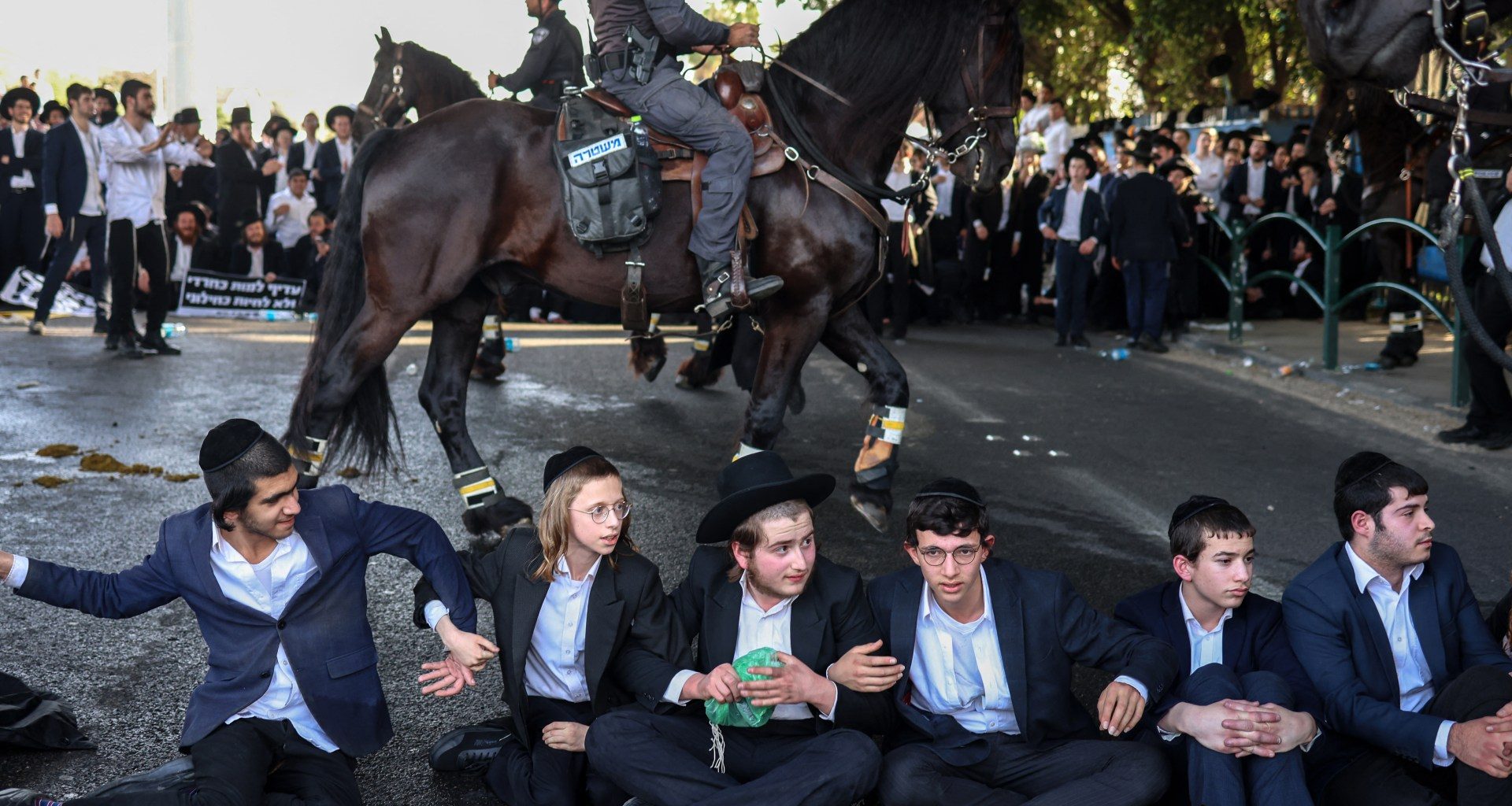
As Israel’s war on Gaza continues amid ongoing hostilities with Hezbollah in Lebanon, there have been growing calls from the Israeli government and society to enlist ultra-Orthodox Jews, also known as Haredim, to serve in the military.
It has been a bone of contention for decades as the ultra-Orthodox have always been exempt from mandatory military service.
Last week, with Israel’s coalition government unable to pass legislation to extend the exemption before it ran out on March 31, the Supreme Court made an interim decision ordering the suspension of state funding for Jewish seminaries if students defied the draft.
Prime Minister Benjamin Netanyahu now has a month to find a solution, after the government filed a last-minute application to the Supreme Court for a 30-day deferment.
The Supreme Court gave government officials until April 30 to submit additional arguments.
Who is enlisted into the army and who is exempt?
Israel requires every Israeli citizen who is “Jewish, Druze or Circassian” to serve in the military from the age of 18. Men serve for about three years and women for at least two years.
Palestinian citizens of Israel, Muslim or Christian, are not obligated to join the military.
Jewish men who study the Torah full-time in seminaries also have annual deferment from enlisting until the age of 26, at which point they become exempt having reached the age limit for joining the army. Young ultra-Orthodox women are exempt.
Ultra-Orthodox Jews have been exempt since Israel’s founding in 1948. The country’s first prime minister David Ben Gurion exempted at the time 400 students of the community so they could study and preserve sacred Jewish knowledge and traditions, following the Holocaust.
Why is there pressure for the ultra-Orthodox to enlist now?
Exemptions for the ultra-Orthodox have become an increasing problem over the decades as the community has a high birthrate and now accounts for about 13 percent of the population. With a fertility rate of more than six children per woman, the community is expected to account for a third of the population within 40 years.
Devoting their lives to religious studies, the men live off of donations and state benefits subsidised by other Israeli citizens.
Yossi Mekelberg, associate fellow at the London-based Chatham House specialising in Israeli and Middle East politics, told Al Jazeera that there was an “unequal burden between the ultra-Orthodox and the non-ultra Orthodox”.
Last year 66,000 members of the community were excused from military service, seen as significant manpower that the military could use for the war in Gaza.
Last month, Defence Minister Yoav Gallant called for lawmakers to enact legislation ending exemptions.
“The army is in need of manpower now. It’s not a matter of politics, it’s a matter of mathematics,” he said.
Nearly 600 Israeli soldiers have been killed in fighting since the start of the war and more than 3,000 have been wounded, according to the Israeli army.
What are the Haredim saying?
The ultra-Orthodox say military service is incompatible with their values. Some of them oppose Zionism, believing that establishing the state of Israel would be pre-empting the arrival of the messiah.
Last week, thousands of ultra-Orthodox protested against the court’s order outside Bnei Brak in central Israel this week. They held signs reading “To jail and not the army”, “We will die rather than draft,” and “Stalin is here.”
Aryeh Deri, head of Shas, the ultra-Orthodox political party in Netanyahu’s coalition, said last week that Supreme Court judges did everything “to create a fratricidal war”.
“The ruling of the High Court of Justice destroys the foundations of the Jewish identity of the State of Israel,” he said on X.
What’s happening on the political stage?
The debate has nearly caused Netanyahu’s coalition to fall apart. While polling shows that a majority of the public is in favour of enlisting the ultra-Orthodox, Netanyahu’s government includes two ultra-Orthodox parties and their withdrawal could trigger new elections, which polls say he would lose.
Meanwhile, Benny Gantz, head of the centrist National Unity and a member of the war cabinet, said his party would quit the government if legislation is passed allowing military service exemption for the ultra-Orthodox.
Mekelberg said, “It’s hard to see how [the court] is going to change its mind” on its interim ruling, but it is still “a long process” enlisting the ultra-Orthodox in the army.
“In order to mobilise them, you need a special unit with them because they won’t serve with women, they need special kosher foods … they’re not known for being physically fit, in terms of what you need in the army; it’s not part of their routine to go to the gym and play football,” he said.
“The High Court of Justice said their rabbinical seminaries won’t be financed by the public as long as their scholars don’t serve in the military. If they don’t have these budgets, allocation of resources, they won’t be able to survive. This will change the discourse altogether.”
Read More: World News | Entertainment News | Celeb News
Aljazera









